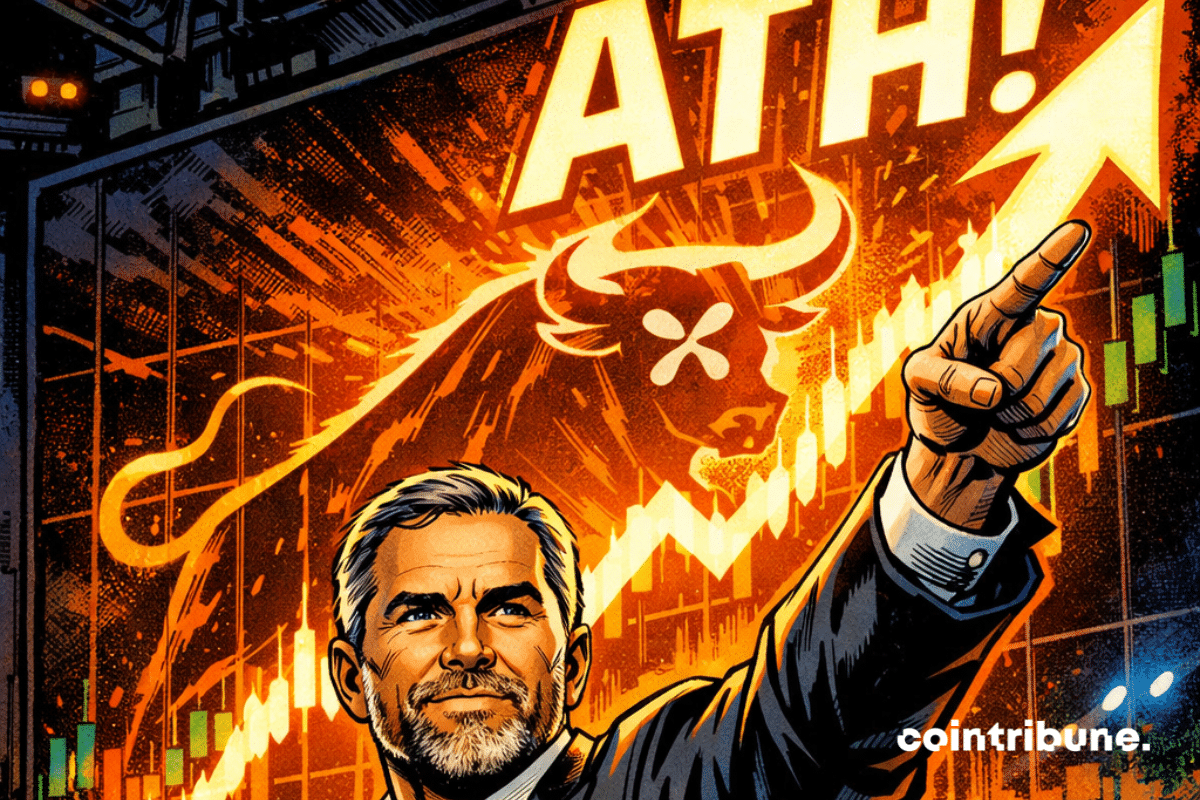In crypto, there are two ways to get noticed: announce a cautious strategy (nobody listens) or buy when it stings. This week, BitMine Immersion Technologies chose the second option: a big block of ether is added to the vault, while the "on paper" losses grow.
Home » Archives for Evans SELEMANI

Evans S.
Fascinated by Bitcoin since 2017, Evariste has continuously researched the subject. While his initial interest was in trading, he now actively seeks to understand all advances centered on cryptocurrencies. As an editor, he strives to consistently deliver high-quality work that reflects the state of the sector as a whole.
Bitcoin sharply dropped this weekend, and the clearest signal does not come from the spot market. It comes from derivatives. The drop of over 10% between a peak at $84,177 and a low at $75,947 opened a rare gap on CME futures contracts, with a price difference exceeding 8% at reopening. It's the fourth largest gap since the launch of Bitcoin futures in 2017.
OpenAI would consider creating a social network where registration would require proof of humanity, via World ID and its “Orbs” for eye scan. The idea, reported by several media outlets, is simple on paper: to cut the ground from under the bots and armies of fake accounts, which have become a permanent background noise on X, Instagram or TikTok.
The crypto market is starting to lift its head again after turbulent weeks. And when the head of Ripple takes a public stand, the signal deserves decoding. Brad Garlinghouse, CEO of Ripple, says he expects a new all-time high in the crypto market. He stated this during an appearance on CNBC, calling himself "very bullish" and ready to "go on the record" with this forecast.
Metaplanet has just sent a clear signal to the market: the company does not intend to let its trajectory be dictated by a set of accounting entries. Yes, the company expects a heavy annual loss in 2025. And yet, it is raising its operational targets and announcing almost a doubling of sales in 2026. Said like that, it sounds like a paradox. In reality, it is mainly a clash of vocabulary between accounting and cash.
Solana is taking a new bet: making hardware a driver for crypto adoption. And, this week, the scenario took an unexpected turn. The token linked to the Seeker smartphone, $SKR, jumped more than 200% in a few days, according to CoinGecko data. The movement followed the TGE and the airdrop associated with Solana Mobile's second phone: a $500 Android, designed from the start for on-chain uses. Everyone expected volatility. But the speed and magnitude of the increase clearly awakened the market.
The crypto ETF dance does not slow down. It changes tune. After Bitcoin and Ethereum, now the market attacks more "political" tokens, more linked to ecosystems, thus more sensitive to regulators' scrutiny. And Grayscale, true to its style, does not timidly knock on the door: it files a dossier and forces the conversation.
Nasdaq has just pushed open a door that many still found "locked": that of position limits on options linked to spot Bitcoin and Ether ETFs. Behind the jargon, there is a simple idea: to stop treating crypto products as tolerated guests, and to bring them in through the main door of "classic" derivatives.
For years, the narrative has been well-oiled: Bitcoin as the ultimate reserve, the rest of the market playing more or less exotic satellites. Yet, some lines are starting to crack. According to crypto analyst and YouTuber FireHustle, the next wave of institutional adoption could well be built elsewhere. More precisely around Solana. A bold hypothesis, almost uncomfortable for maximalists, but deserving more than a shrug.
The recent surge in activity on Ethereum might be less a sign of euphoria and more a malicious background noise. A security researcher, Andrey Sergeenkov, believes that part of this increase resembles an "address poisoning" campaign, a variant of dusting that takes advantage of transaction fees that have been very low since December. "Activity retention" nearly doubled in a month, around 8 million addresses, while daily transactions reached a record close to 2.9 million.
Ethereum has not "lost", but it has sometimes compromised. That is the quite direct message that Vitalik Buterin put back on the table on Friday 16 January 2026. He promises a year of reconquest: easier to verify the network yourself, easier to use dApps without trusting intermediaries, and easier to take back control of your data.
The crypto market returns to a more neutral tone, but remains quiet. The Crypto Fear & Greed Index has risen to 54, a sign of a return to balance after weeks dominated by fear, while prices stabilize. Yet, the most telling signal comes from elsewhere: spot volumes remain close to…
The Sui blockchain experienced a major outage lasting nearly six hours, completely interrupting transactions and freezing over one billion dollars of on-chain value. The incident, confirmed by the Sui Foundation, reignites the debate about the resilience of so-called “high-throughput” blockchains in a crypto context where technical reliability is becoming a…
Bitcoin mining loves podiums. One number climbs, another falls, and the ecosystem tells itself a simple story. Except that in this industry, the way you count matters almost as much as the machines. And that’s exactly what makes the “Bitdeer moment” interesting. Bitdeer claims to have reached 71 EH/s of…
There is talk of a 'treasure' of 600,000 BTC attributed to Venezuela: a figure that sounds like a threat. Washington is considering the idea of a seizure, without openly admitting it. Paul S. Atkins, chairman of the SEC, confirms nothing... but does not close the door. And that is where everything changes: bitcoin is no longer just an asset, it is a geopolitical lever. The essential remains to be decided: evidence, keys, and the power to seize.














